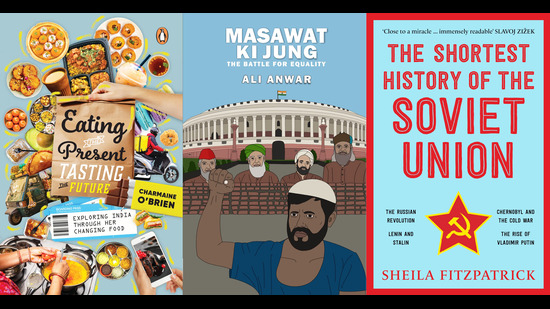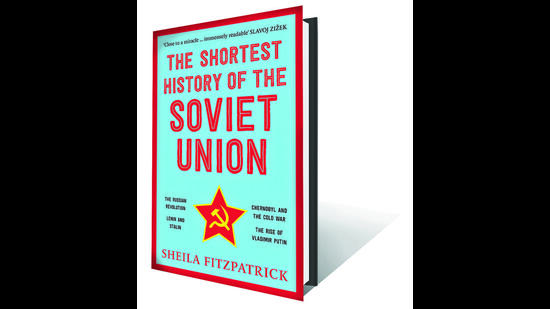HT Picks; New Reads
This week’s list of interesting reads includes a book on Pasmanda identity and the extent of marginalization of backward castes and Dalits among Muslims, another on the USSR and its disintegration, and a volume on India’s contemporary foodscape
Brief history of Pasmanda identity


It was Ali Anwar, the author of this book, who first proposed, in the 1990s, the nomenclature “Pasmanda” (meaning those who have been left behind) for the backward castes and Dalits among Muslims. Masawat ki Jung: The Battle for Equality provides a brief history of the Pasmanda identity, which has now entered mainstream political discourse as the ruling Bharatiya Janata Party seeks votes from among Muslims. This book, originally written in Hindi in 2001, traces the birth of Islam in the Middle East, the coming of Islam to India and its expansion as the several castes on the subcontinent embraced the faith. With a focus on Bihar, the author draws on studies of anthropologists, historians as well as his own field trips and interviews, to depict the extent of marginalization of this vast majority of Indian Muslims both in society and politics.*
From Lenin to glasnost and beyond

The Soviet Union arrived in the world accidentally and departed unexpectedly. Over a century after the Russian Revolution, the tumultuous history of the Soviet Union continues to fascinate us and influence global politics. From revolution and Lenin to Stalin’s Terror, from World War II to Gorbachev’s glasnost, this is an authoritative distillation of 75 years of communist rule, and the disintegration of an empire.
Fitzpatrick charts the fate of countries often left out of Soviet histories, gives vivid portraits of key figures, and traces the aftermath of the regime’s sudden collapse. She explores the rise of the oligarchs, the rebirth of the Church and the enigmatic figure of Vladimir Putin: a Soviet creation but no Soviet nostalgic. Lastly, she considers the future of Communism. Who still worships Marx and Lenin? What lessons has today’s superpower, China, learned from yesterday’s Soviet failure? What could be the future of Putin’s expansionism?*
Exploring India through her changing food

India’s food is one of her most remarkable features: its countless tastes and styles reflect the nation’s history, enduring traditions, and diversity of people and place. But it is changing at a rapid rate beyond anyone’s imagination.
Eating the Present, Tasting the Future ventures “off the plate” to journey through India’s contemporary foodscape to discover the myriad forces transforming what, how and where Indians are producing, trading and eating their food. At a time when food and our relationship with it are topics of increasing global interest, this is a timely, and important, work, offering unique insight into a complex society.*
*All copy from book flap.






